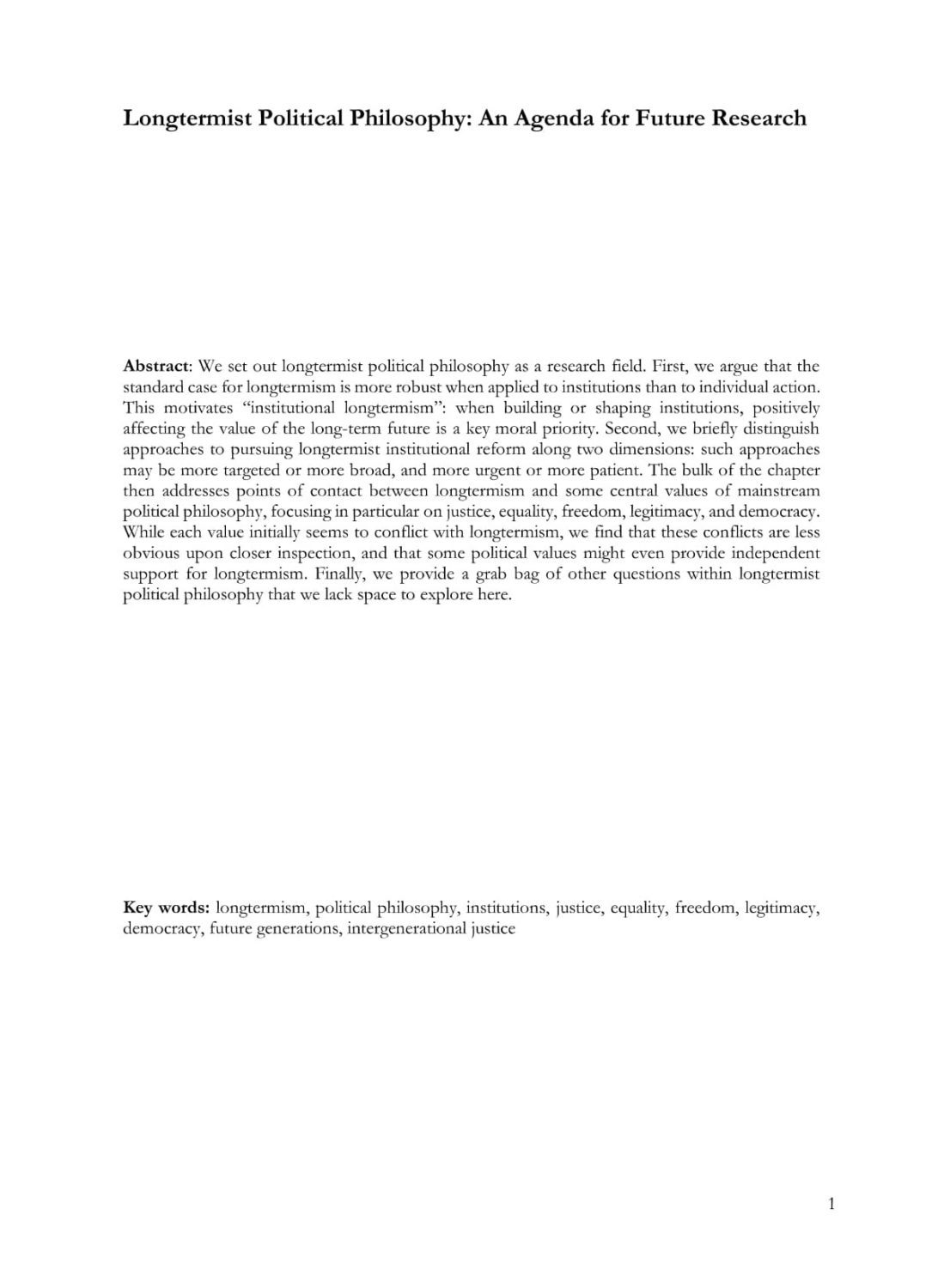Longtermist political philosophy: an agenda for future research
Jacob Barrett (Global Priorities Institute, University of Oxford) and Andreas T. Schmidt (University of Groningen)
GPI Working Paper No. 15 - 2022, forthcoming in Essays on Longtermism
We set out longtermist political philosophy as a research field. First, we argue that the standard case for longtermism is more robust when applied to institutions than to individual action. This motivates “institutional longtermism”: when building or shaping institutions, positively affecting the value of the long-term future is a key moral priority. Second, we briefly distinguish approaches to pursuing longtermist institutional reform along two dimensions: such approaches may be more targeted or more broad, and more urgent or more patient. The bulk of the chapter then addresses points of contact between longtermism and some central values of mainstream political philosophy, focusing in particular on justice, equality, freedom, legitimacy, and democracy. While each value initially seems to conflict with longtermism, we find that these conflicts are less obvious upon closer inspection, and that some political values might even provide independent support for longtermism. Finally, we provide a grab bag of other questions within longtermist political philosophy that we lack space to explore here.
Other working papers
Choosing the future: Markets, ethics and rapprochement in social discounting – Antony Millner (University of California, Santa Barbara) and Geoffrey Heal (Columbia University)
This paper provides a critical review of the literature on choosing social discount rates (SDRs) for public cost-benefit analysis. We discuss two dominant approaches, the first based on market prices, and the second based on intertemporal ethics. While both methods have attractive features, neither is immune to criticism. …
Egyptology and Fanaticism – Hayden Wilkinson (Global Priorities Institute, University of Oxford)
Various decision theories share a troubling implication. They imply that, for any finite amount of value, it would be better to wager it all for a vanishingly small probability of some greater value. Counterintuitive as it might be, this fanaticism has seemingly compelling independent arguments in its favour. In this paper, I consider perhaps the most prima facie compelling such argument: an Egyptology argument (an analogue of the Egyptology argument from population ethics). …
The scope of longtermism – David Thorstad (Global Priorities Institute, University of Oxford)
Longtermism holds roughly that in many decision situations, the best thing we can do is what is best for the long-term future. The scope question for longtermism asks: how large is the class of decision situations for which longtermism holds? Although longtermism was initially developed to describe the situation of…

